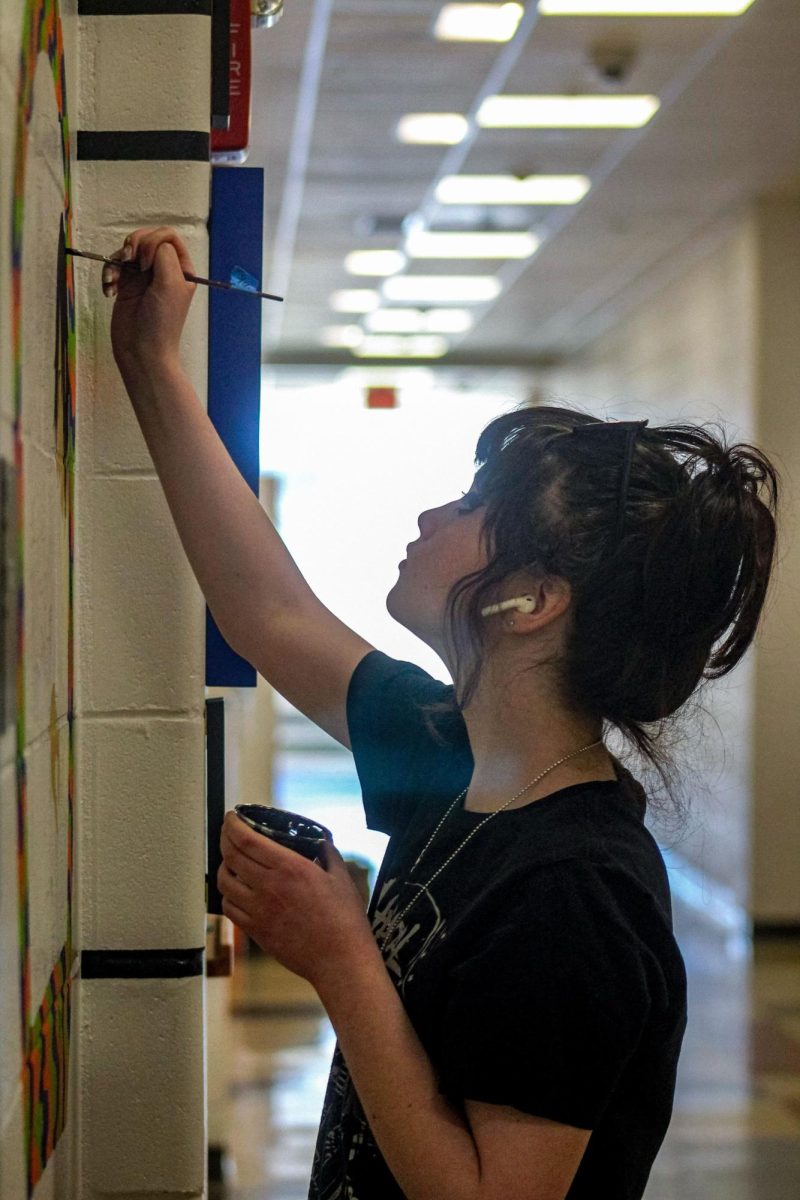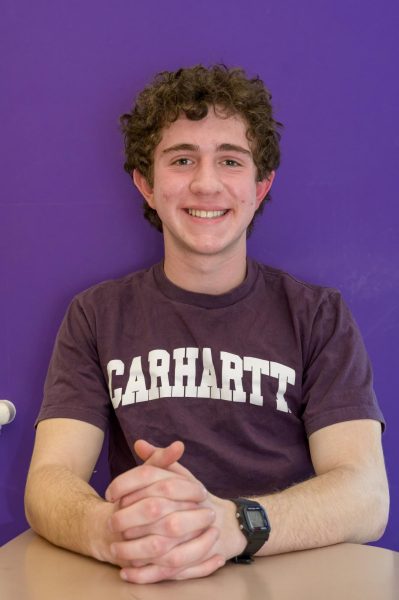In school districts nationwide, students interested in learning job-specific skills are encouraged to transfer to vocational schools, which offer an inflexible and more career-forward education than traditional public schools. In the Newton Public Schools (NPS), those same career-minded students are given a different option in the form of Career and Technical Education (CTE) programs. CTE programs are the seemingly more flexible solution to the rigidity of vocational school schedules. However, strict governmental regulations for the CTE curriculum make completing these programs challenging.
Junior Micah Klein had always enjoyed editing his own videos, so when he started at North, he eagerly signed up for the Exploratory TV Media Arts course. During the first semester of his freshman year, Klein joined one of the two full sections and fit himself into the gaggle of wide-eyed and ready-to-learn students. Yet only five of those students, including Klein, have continued through to Major II today.
Klein’s experience with TV Media Arts is ordinary. Registration for CTE major courses declines significantly as students progress through levels of mastery. Currently, exploratory classes for these programs have a surplus of eager underclassmen. Still, each year, more and more of these students choose not to pursue their CTE courses as upperclassmen.
According to data analyst and scheduler Meghan Smith, in the 2025 school year, 126 students will be enrolled in Exploratory Culinary Arts, but only seven students have committed to Major III. Similarly, of the 46 students who were enrolled in Exploratory Automotive Technology last year, only 10 continued to the next level, and although there are 51 students in Exploratory Child Development, there are only 7 students in the Major III class, Smith said.
According to Klein, a primary reason some of his former classmates chose to drop the program is that it is “a lot of time to be taking up.”
The commitment required for CTE classes increases as students progress through the majors. Exploratory CTE students start with a semester class, followed by a full year in Major I and two full-year periods for those in Major II. Students enrolled in Major III must devote three blocks to their respective CTE classes.
CTE director Kathleen Duff added that implementing a CTE program course with fewer time obligations at North “is not an option.”
CTE programs receive funding, curricula, and equipment from the government and, therefore, must follow federal and state regulations and requirements. These requirements demand that CTE students actively participate in their respective programs for 900 hours total. This rule ensures that students have a thorough foundation for a practical career.
Major III students completing the 900 hours also receive certification for what they have learned within their trade. Some students may qualify for a cooperative education workplace learning experience, where they can be paid for their participation in the CTE program. Other students may be eligible to obtain college credits if they continue on this career path.
As long as the school continues to adhere to the federal and state requirements around these courses, there will be no leeway on CTE schedules.
The heavy requirements for the CTE majors are a deterrent to some people. Despite sticking with the course her freshman and sophomore years, junior Alyssa Connelly, a former Culinary Arts Major I, said she wanted more flexibility in the variety of classes she could take.
“I dropped culinary because it became too much of a time commitment, and I got bored,” Connelly added.
Additionally, while students are encouraged to try out many courses their freshman year, including various CTE exploratory classes, they are unable to continue into a major in more than one CTE.
According to Klein, the lack of scheduling space made his decision to continue in TV Media after taking the exploratory class difficult, as he also had a positive experience in the Graphic Communications exploratory class that same year.
“Going into my sophomore year and majoring, I had to make a decision of which one I wanted to choose,” said Klein, “and it would have been nice to have the ability to take one as a major and one as just an optional side class.”
For students like Connelly, who think of their CTE class “as a hobby to pick up”, having multiple full-year periods devoted to a sideline passion is not worth the time, she said.
According to Duff, CTE classes are not merely “hobby” classes. Instead, they require students t have dedication, passion, and a willingness to put the needs of the CTE class first. This rigidity is not a deterrent for all students in CTE courses. Those committed to the trade see the benefits despite the challenges.
“Choosing to participate in a CTE program requires a choice and a recommendation and a commitment,” said Duff, “but the students seem to believe it’s worth it.”
Klein added that he considers himself to be one of those few devoted students. “I think that as I learn new stuff every year, I get better with the equipment and become more knowledgeable in the field. I get to just keep growing and expanding the more I take the course,” he said.
As freshmen begin their journeys into CTE classes, there will be some that leave the program prematurely. But for some students, this is only the beginning. Freshman Colin Kane is currently one of 98 students taking the Exploratory Graphic Communications course. According to Kane, he has recently started to see this class as a lasting feature of his Newton North experience.
“As of right now I definitely would want to continue. I have seen such cool projects from higher levels and I would love to be able to try them in the future,” said Kane.










































